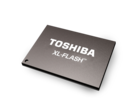Digital data storage has come quite a long way since its early magnetic tape days. Floppy discs were essentially derived from tape, but they became extinct with the adoption of CDs, DVDs and Blu-Rays. HDDs still offer the best bang for the buck when it comes to capacity and GB/$ ratio, but SSDs are quickly catching up and will most likely replace HDDs in the near future because of their reduced size and superior reading / writing speeds.
All these types of storage media are readily available for consumers, yet they are not the best options as far as archiving digital data is concerned. In this case, tape archiving is still the best way to go, even though it is far from offering the needed durability, as it requires specific maintenance and has very low scalability. In a quest to improve both medium durability and longevity, Microsoft came to the conclusion that archival tape can reliably be replaced with a storage system based on quartz glass sheets the size of drink coasters.
With Project Silica, Microsoft is presenting a highly scalable storage solution that is designed for the cloud computing age. According to some recent reports, over 100 zettabytes of data will be stored in the cloud by 2023, and the current storage media is not cutting it anymore. The new quartz glass storing medium works in conjunction with femtosecond lasers developed with the aid of the University of Southampton Optoelectronics Research Centre. This ultrafast type of lasers is able to encode data in the form of voxels, which are structured in 3D layers of nanoscale gratings with various depths and angles. The laser-etched voxel data is decoded through machine learning algorithms that identify images and patterns in the polarized light that shines through the glass.
The glass medium offers superior durability as quartz is proven to remain intact even after it gets boiled in water, exposed to high microwave heat, scoured or demagnetized. The glass sheets are also easier to replace and maintain, reducing the environmental impact brought by energy-intensive air conditioning and moisture control systems. Another advantage over the current tape medium is the ease of data retrieval, which is made possible by machine learning algorithms that very quickly read the needed data cluster.
As a first proof of concept test for Project Silica, Microsoft and Warner Bros. managed to store the original 1978 Superman movie on a 75 x 75 x 2 mm sheet of glass the size of a drink coaster. The new storage media will be used to archive “cold” data that is not frequently accessed, including medical data, financial regulation data, legal contracts, geologic information related to energy exploration and building plans.
I first stepped into the wondrous IT&C world when I was around seven years old. I was instantly fascinated by computerized graphics, whether they were from games or 3D applications like 3D Max. I'm also an avid reader of science fiction, an astrophysics aficionado, and a crypto geek. I started writing PC-related articles for Softpedia and a few blogs back in 2006. I joined the Notebookcheck team in the summer of 2017 and am currently a senior tech writer mostly covering processor, GPU, and laptop news.
> Expert Reviews and News on Laptops, Smartphones and Tech Innovations > News > News Archive > Newsarchive 2019 11 > Microsoft develops ultra-durable quartz glass data storage system
Bogdan Solca, 2019-11- 5 (Update: 2026-02-18)








